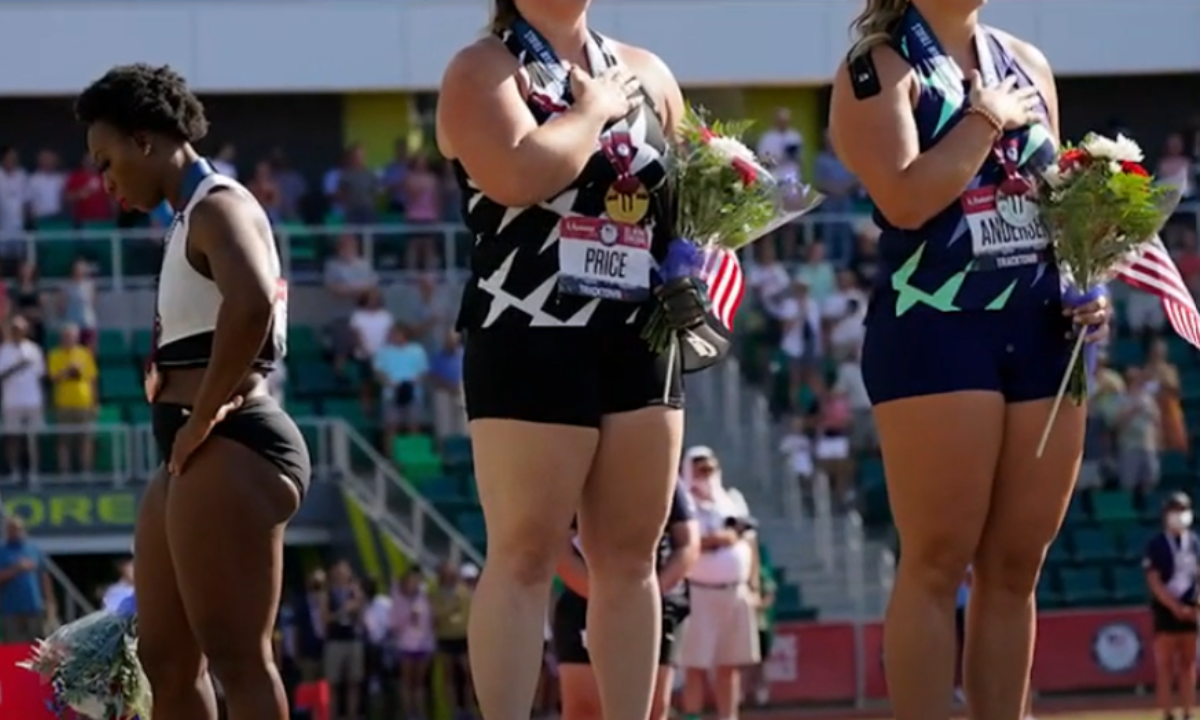Written by Will Seykora
Olympic athletes are meant to represent the best of our country, the elite stars who have trained their entire life to represent the U.S. on a global stage in hopes of bringing home gold. However, an Olympic hammer thrower, Gwen Berry, thinks otherwise.
After the finals of the Olympic trials, the national anthem was played, during that time Gwen Berry quite literally turned her back on America. Gold and silver medalists DeAnna Price and Brooke Anderson on the other hand both stood proud to represent their country with a hand over their heart and an American Flag in the other.
Berry defends her actions, claiming the whole thing was a setup meant for her to look bad. “They said they were going to play it before we walked out, then they played it when we were out there.” she said. Instead of apologizing or showing any regret, she doubled down by saying “The anthem doesn’t speak for me. It never has.”
A USA Track and Field spokesperson dismissed the accusation of a setup. “The national anthem was scheduled to play at 5:20 p.m. today. We didn’t wait until the athletes were on the podium for the hammer throw awards. The national anthem is played every day according to a previously published schedule.”
However, this isn’t Berry’s first time being under the spotlight not for her performance on the field, but for her protest of the national anthem. In the past, she has also been sanctioned by the Olympic Committee for raising her fist at the end of the national anthem during an event.
By stepping up and accepting the challenge of becoming an Olympic athlete one also accepts that they will be representing their country. Not just the good parts of the country, but also the flaws, bumps, and bruises it has gathered over the years. When you represent America you represent a nation that has always strived to be an equal and all-inclusive place for people to grow, regardless of gender, nationality, race, or religion. However, over the past year, we have seen people like Berry who have prospered in America, turn their backs on the flag and the country it represents when they achieve a national stage.




